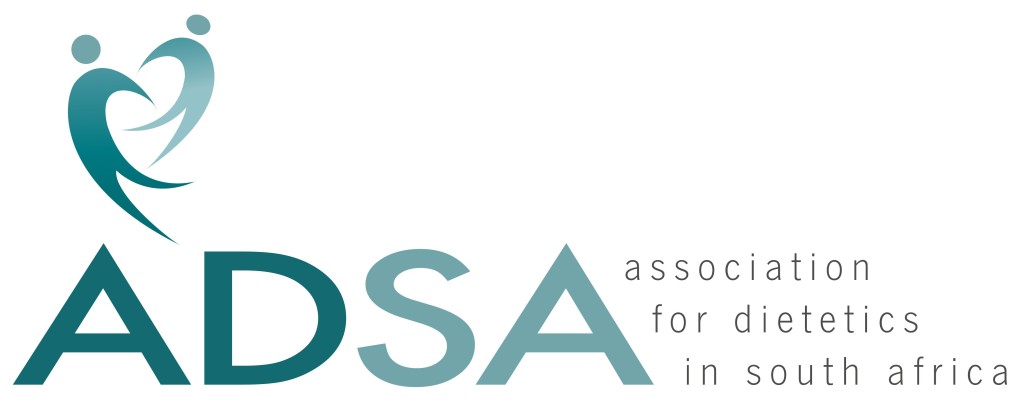With the arrival of COVID-19 in South Africa, our focus is on the health and safety of our members and the clients and communities you serve. We have put together a list of action points that can be implemented by our dietitians across various industries. Primary prevention measures include washing your hands frequently with soap and water or sanitizer, social distancing, covering your mouth when coughing or sneezing, and avoiding touching your face.
Wherever possible move face-to-face consultations / meetings / interactions into the virtual space. We understand that this can be a challenge for both the dietitian and client, but there are various options available including Skype, Zoom and WhatsApp. Many of the online meeting options currently have special offers to try and support people to do their work online. Many private-practising dietitians already do virtual consulting with patients abroad and have had equally successful results with their patients using this format of nutrition intervention.
For any face-to-face interactions stick to the following guidelines for yourself and your clients:
- If you have recently travelled to a country identified as a high risk or have been in contact with someone who has travelled to these countries, please change your consultation / meeting to a virtual one.
- If you or your patients are immune compromised, rather book virtual consultations.
- If your clients are coming into your office / work space, please put in place the following hygiene practises:
- Ask all clients to wash or sanitize their hands on arrival at your office.
- Frequently clean your reception and office counter surfaces, as well as door handles, flushing mechanisms and taps, because contamination on surfaces touched by employees and customers is one of the main ways that COVID-19 spreads.
- Don’t shake hands, maintain a reasonable distance between you and your client.
- Regularly (between each use) clean equipment such as credit card machines and all clinical equipment with alcohol swabs. Refrain from handling cash, rather opt for contactless transactions (EFT, Snapscan or Zapper)
- If you are feeling ill, do not implement a face-to-face consult.
Please at all times follow the advice and guidelines from WHO and the South African National Institute for Communicable Diseases (NICD):
- If anyone of your clients or their immediate family, have been travelling overseas, please do not have face-to-face meetings for a period of 14 days.
- Ask your clients to inform you immediately if they are diagnosed with COVID-19 and inform your clients and close contacts immediately if you are diagnosed with COVID-19
- Do not meet with clients if you are experiencing symptoms such a fever, runny nose, cough, shortness of breath or a sore throat and vice versa.
- Ask clients to arrive on time for appointments and not early.
- Don’t allow any accompanying persons into the waiting area, rather ask them to wait in the car.
- Do not allow any eating or drinking in the waiting area.
- Do not allow the use of cellphones, laptops, tablets or any other electrical devices in the waiting area.
Hand-Washing
- Please wash or sanitize your hands regularly and thoroughly, no matter where you work.
- Display posters in your workplace promoting hand-washing
- Make sure clients and staff have access to places where they can wash their hands with soap and water or sanitizer, because washing kills the virus on your hands and prevents the spread of COVID-19
Meetings
- Consider whether a face-to-face meeting or event is needed. Rather move all meetings online, using existing meeting platforms or WhatsApp.
- If you have to meet ensure that as few people as possible are in the meeting and follow the hygiene guidelines above.
To learn more about COVID-19 and to access the latest information and advice, we further recommend that members refer to the following resources:
- COVID-19 Corona Virus South African Resource Portal: https://sacoronavirus.co.za/
- South African Coronavirus Disease 2019 Public and Emergency Hotline: 0800 029 999
- South African Coronavirus Disease 2019 WhatsApp Support Line: 0600- 123456
- The National Institute for Communicable Diseases (NICD): nicd.ac.za
- The World Health Organisation (WHO): http://www.who.int/health-topics/coronavirus



 Despite what we know about the impact of food choices on our health, overweight and obesity are still on the rise in South Africa, alongside a host of preventable diseases that can be attributed to unhealthy lifestyles. Thanks to our industrialised food system, and far greater, ultra-processed and fast food choices aimed at our ‘convenience’, we’ve got further away from eating the whole foods that are really good for us. This is the message that a coalition of health professional associations, including the Department of Health, is highlighting in October across both
Despite what we know about the impact of food choices on our health, overweight and obesity are still on the rise in South Africa, alongside a host of preventable diseases that can be attributed to unhealthy lifestyles. Thanks to our industrialised food system, and far greater, ultra-processed and fast food choices aimed at our ‘convenience’, we’ve got further away from eating the whole foods that are really good for us. This is the message that a coalition of health professional associations, including the Department of Health, is highlighting in October across both 





 Our dietetic students are often involved in awesome projects and we love the
Our dietetic students are often involved in awesome projects and we love the 

 It is true, that for most of us, the morning is far more time-stressed in comparison to supper. However, planning, preparation and smart food choices will result in being able to either sit down and eat breakfast with your family or eat your breakfast over the two to three hours after waking. Abby advises: “From a time perspective, drinking is often quicker than sitting down to a full meal and so my suggestion is a nutritious smoothie. I encourage my patients to blend together a small banana, oats, sugar-free peanut butter and low fat milk. Baby spinach is an optional extra. Not only is this the quickest meal, but it contains balanced portions of fruit, vegetables, minimally processed grains and healthy plant fats. What a way to start your day!” With some planning, preparations for breakfast can be made the night before. Beat the clock by soaking your oats, cutting fruit and boiling eggs during your supper preparation so that it is as easy as possible to make breakfast a quick, enjoyable family meal.
It is true, that for most of us, the morning is far more time-stressed in comparison to supper. However, planning, preparation and smart food choices will result in being able to either sit down and eat breakfast with your family or eat your breakfast over the two to three hours after waking. Abby advises: “From a time perspective, drinking is often quicker than sitting down to a full meal and so my suggestion is a nutritious smoothie. I encourage my patients to blend together a small banana, oats, sugar-free peanut butter and low fat milk. Baby spinach is an optional extra. Not only is this the quickest meal, but it contains balanced portions of fruit, vegetables, minimally processed grains and healthy plant fats. What a way to start your day!” With some planning, preparations for breakfast can be made the night before. Beat the clock by soaking your oats, cutting fruit and boiling eggs during your supper preparation so that it is as easy as possible to make breakfast a quick, enjoyable family meal.











 Working SA mums are entitled to a minimum of four consecutive months of maternity leave. Many take at least one month of that leave prior to the birth, and then make their return to work when their infants are just around three months old. However, exclusive breastfeeding of an infant from birth to six months is what is recommended as optimal nutrition by the World Health Organisation. Therefore, the only way that working new mums can meet these important health standards is if they can breastfeed or express breast milk for some months at their workplaces.
Working SA mums are entitled to a minimum of four consecutive months of maternity leave. Many take at least one month of that leave prior to the birth, and then make their return to work when their infants are just around three months old. However, exclusive breastfeeding of an infant from birth to six months is what is recommended as optimal nutrition by the World Health Organisation. Therefore, the only way that working new mums can meet these important health standards is if they can breastfeed or express breast milk for some months at their workplaces.







 tion for registered dietitians, and has been committed to serving the interests of dietitians in South Africa for the past 29 years. The Association is made up of a variety of members, from registered dietitians and nutritionists, to community service and student dietitians, international, retired and honorary members.
tion for registered dietitians, and has been committed to serving the interests of dietitians in South Africa for the past 29 years. The Association is made up of a variety of members, from registered dietitians and nutritionists, to community service and student dietitians, international, retired and honorary members.



















